BAGHDAD - Soldiers from 307th Brigade Support Battalion, 1st Advise and Assist Brigade, 82nd Airborne Division at Al Asad Air Base, not only have an inexpensive way to deliver small items like ammunition, food and water, they have trained members of 9th Regional Commando Bn., 2nd Bde., Iraqi Special Operations Forces, 7th IA Div., how to do it themselves.
The Low Cost, Low Altitude Aerial Delivery System is a means to airdrop smaller items at locations that may be cut off from traditional re-supply methods. The system is made up of very few items. Honeycombed cardboard, squares of plywood and plastic wrap are some of the materials used to hold the precious cargo together. A small parachute attached to the top safely and slowly lowers the equipment to the ground. Any helicopter capable of carrying personnel can deliver the bundles.
"We are adding a logistics capability to the Iraqi Army, exposing them to something new," said Capt. Kyle Brown, assistant operations officer and Manhattan Beach, Calif., native assigned to 307th BSB. "It adds modernization; a new, modern era for the Iraqi forces."
This ability was not something the Iraqi Soldiers had previously.
The 307th BSB Soldiers first had to train them on proper construction of the items, and then the correct way to deploy them in the field.
In a warehouse at Al Asad Air Base, trainers assembled and IA Soldiers got their hands on the equipment for the first time. Hours of training paid off for the Iraqi Soldiers, leaving them eager to show off their newfound knowledge. The finished crates were then loaded into a helicopter and dropped out at a predetermined location outside the camp.
"It's a great capability they can use in an emergency," said Buffalo, N.Y., native Lt. Col. Andrew Danwin, commander, 307th BSB. "It's another tool in their kit bag. If they need it, it's there."
Danwin said it has also been beneficial for the two forces to work together.
"It is good to cross-level ideas and skill sets," he said. "The Iraqi Army is a growing army, a professional army."
The 307th BSB showed its confidence in the IA's ability by delivering two fully built systems and extra materials used to make them, including eight extra parachutes to the Anti-terrorism Forces Command Center in the Anbar province. They also are creating user manuals and maintenance manuals in Arabic for the Iraqi Soldiers to use in the future.
"They don't have access to computers to download stuff. By giving them the books, they have access to the information," said Brown. "These are things they need to succeed. When we leave here, we want to say [we've] done our best. I want to leave here with no regrets."
With the items and know-how successfully transferred, soldiers from the two forces shared hand-shakes and smiles; another step closer to a more stable, self-sustainable Iraqi Army.
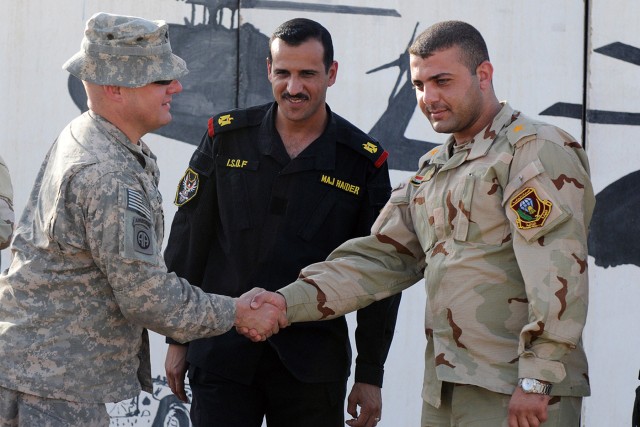
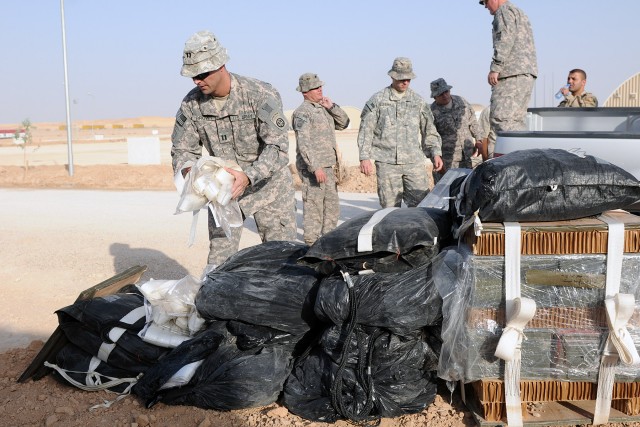
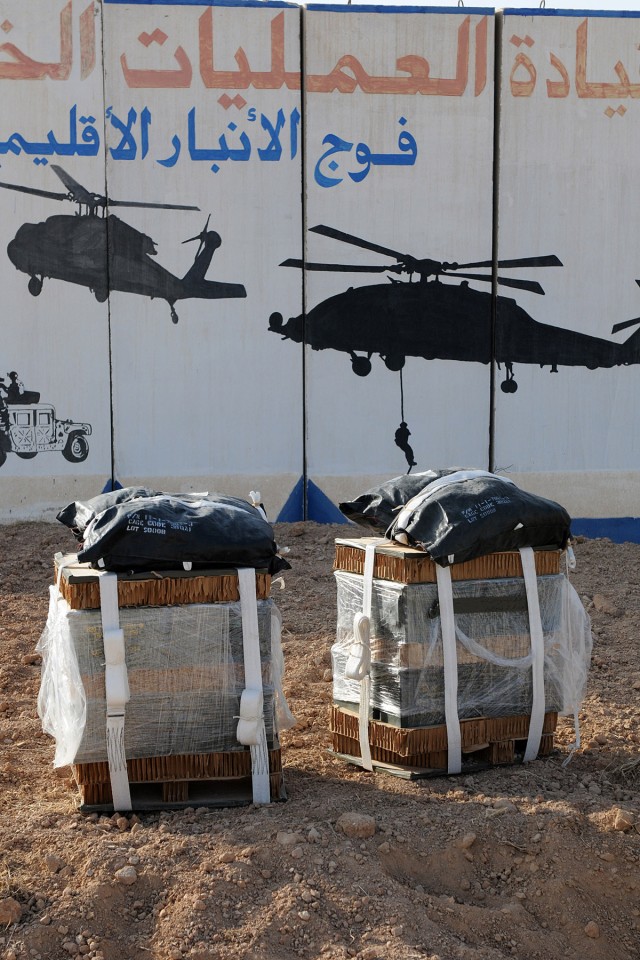
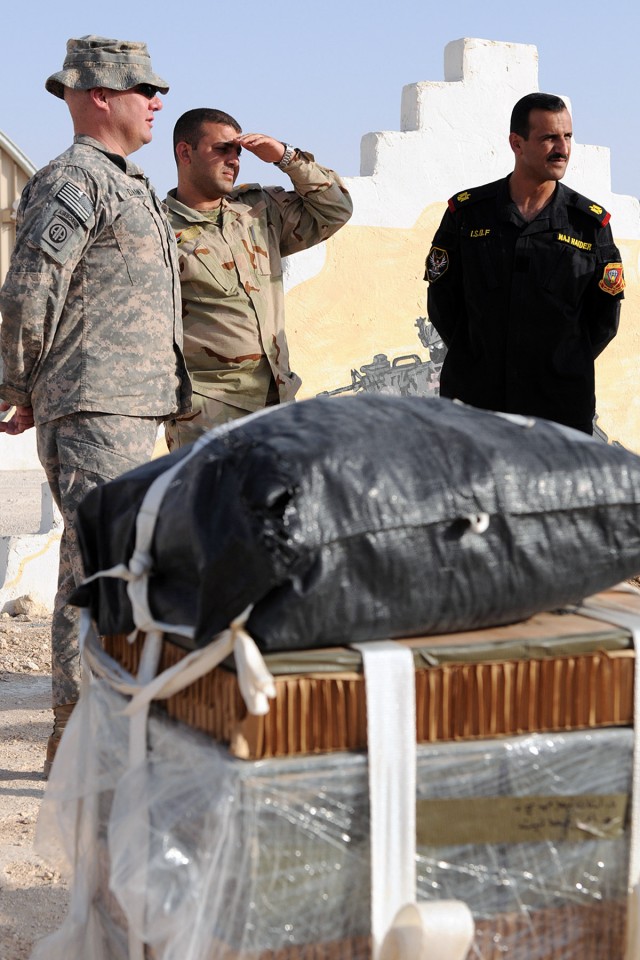
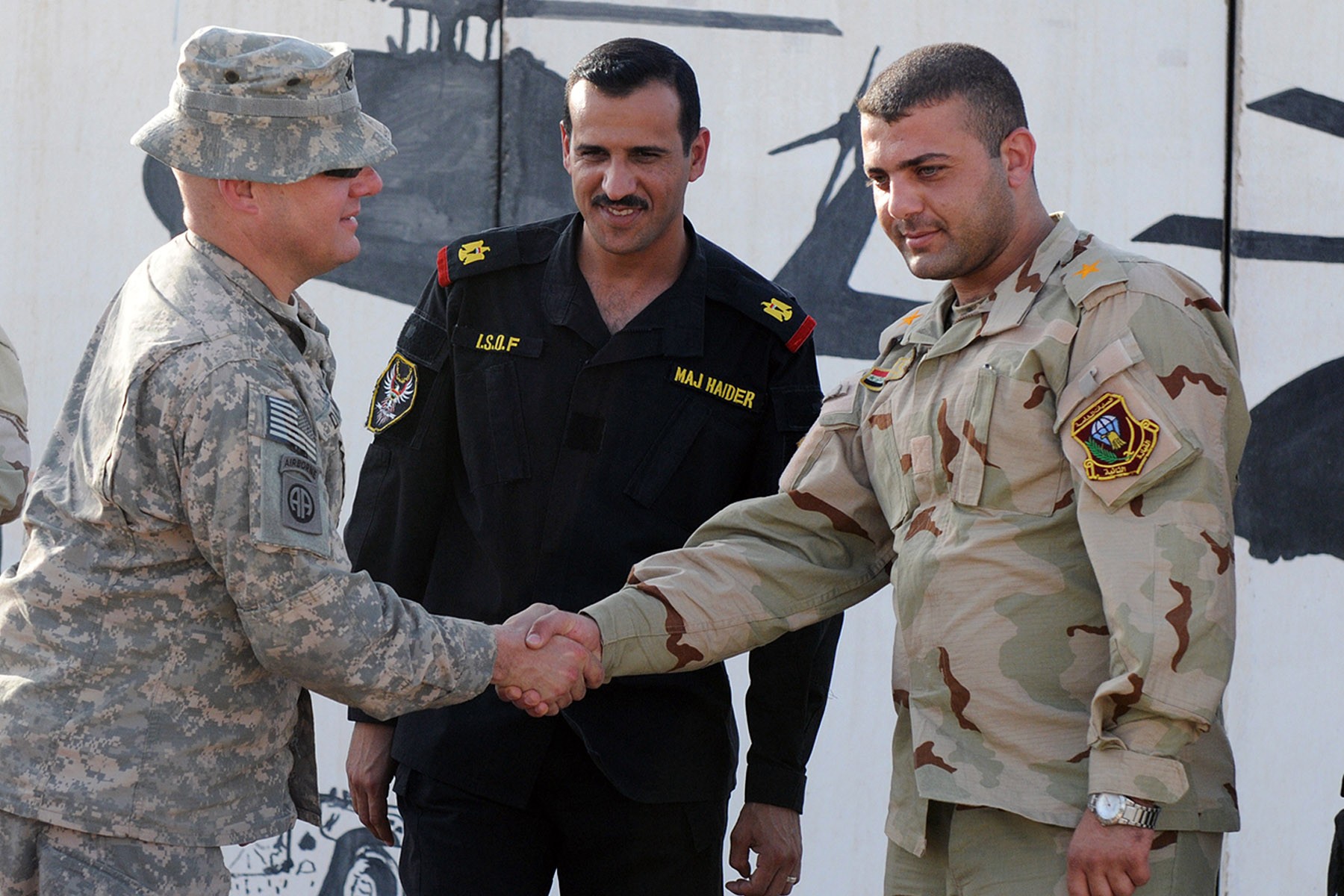
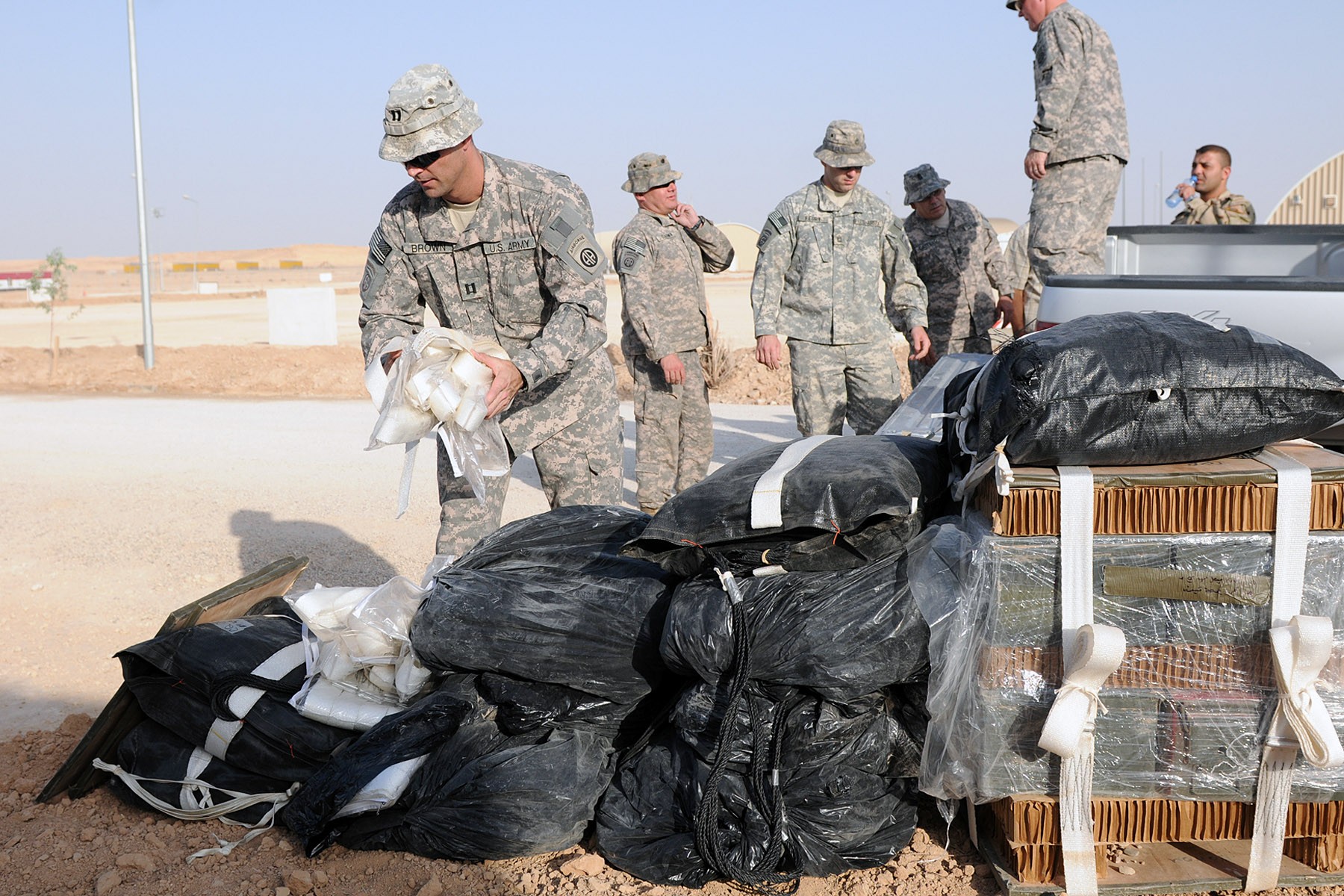
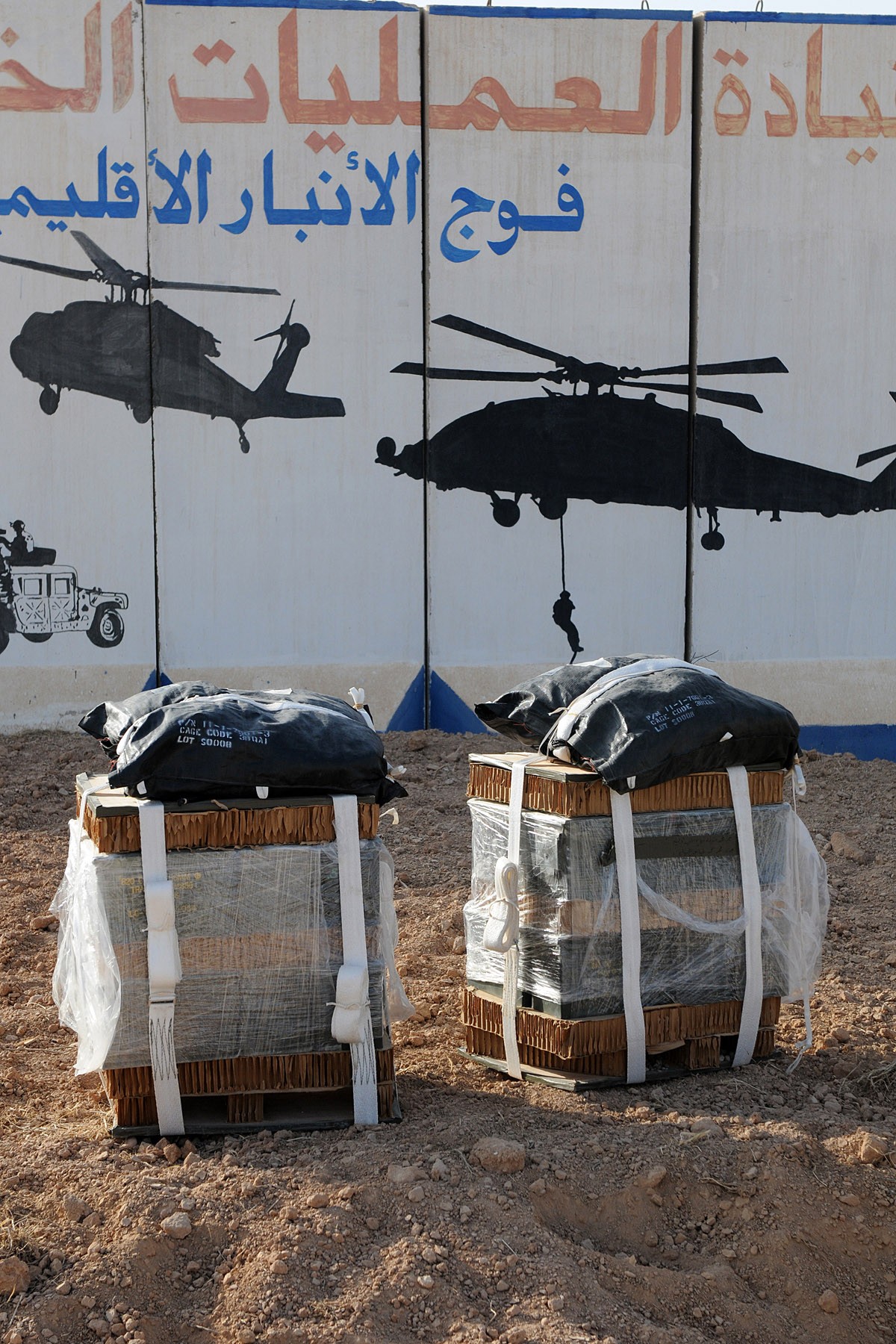
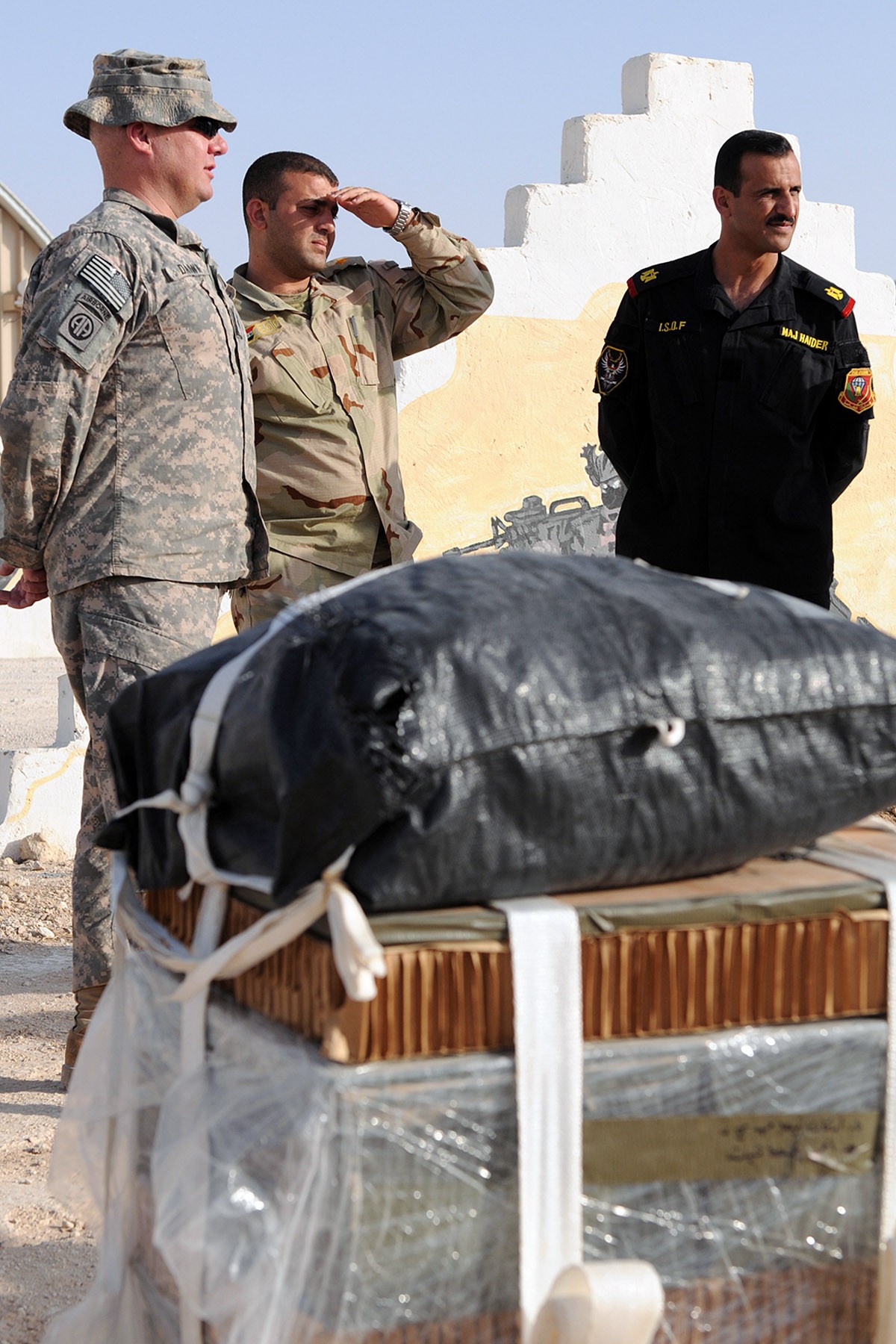
Social Sharing